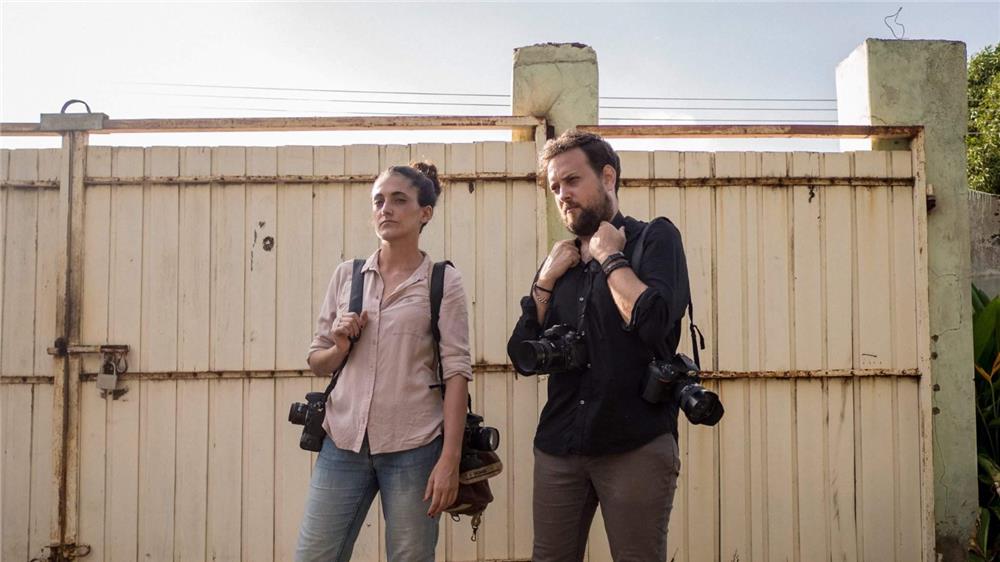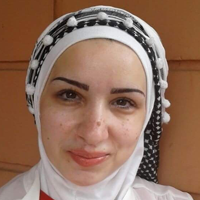تحوز القارة السوداء -أفريقيا- على اهتمام العديد من المنابر الصحفية في أوروبا والأميركيتين، على اعتبار أنها تضم العديد من القضايا والحالات الإنسانية التي تسعى الصحافة العالمية لتسليط الضوء عليها عبر مراسلين يتوجهون إلى أفريقيا من بلاد مختلفة.
تضع الصحافة والإعلام القارة الأفريقية في صورة نمطية تتمحور في المجاعات والأوبئة والفقر والتخلف، إلا أن العديد من الصحفيين الجدد وبالتعاون مع منابر إعلامية كثيرة في أوروبا والأميركيتين، يتوجهون بأنظارهم نحو أفريقيا لكسر الصورة النمطية عنها والغوص في أسرارها ونفض الغبار عن خفايا هذه القارة.
جوردي وكريستينا بريديكو زوجان وصحفيان إسبانيان قدما إلى أفريقيا بعد رحلة حول العالم مرَّا خلالها بروسيا وإيران وأذربيجان لرصد وتغطية مواضيع حول ثقافات الشعوب المختلفة، لكنهما في نهاية قررا أن يحطا رحالهما في أفريقيا.. يقول جوردي "بعد أن تخرجنا من معهد الصحافة في فنلندا، قررنا أن نذهب في جولة حول العالم، لكن بعد ذلك كان لا بد لنا أن نستقر في مكان نستطيع من خلال تواجدنا فيه الحصول على تحقيقات وقصص غريبة تشد القارئ؛ فالصحفي الذي يسعى للتميز عليه المغامرة.. هناك من يذهب إلى أماكن الحروب والصراعات مثل سوريا والعراق، لكننا قررنا الاستقرار في أفريقيا حيث إن العديد من المنابر الصحفية تهتم بها مؤخرا لتصحيح صورتها عند القارئ ومعالجة مشكلاتها ودعمها".

لا يخفى على أحد أن الدول الأفريقية هي دول نامية ينتشر فيها الفقر والبطالة والأمراض، إضافة إلى غلاء المعيشة ومتطلبات الحياة فيها.. كل هذه العوامل قد تعترض طريق من يفكر في العيش فيها. تقول كريستينا إن "قرار العيش في أفريقيا لم يكن سهلا، غير أننا لا نعرف أحدا هنا، وعلينا الاعتماد على أنفسنا في كل شيء.. استغرقنا وقتا للتعرف إلى طبيعة العيش وطريقة التعامل مع الناس لممارسة العمل الصحفي، لكن برأيي لا بد من التضحية، فهي في النهاية تجربة متعبة ككل تجارب العمل الصحفي".
أما ستيسي كنوت -وهي صحفية نيوزيلندية ومراسلة وكالة أنباء فرنسية- فتعمل في أفريقيا منذ سنوات، وقد قدمت إليها بعد أن تعرفت إلى شاب أفريقي وارتبطت به واصطحبها إلى أفريقيا فقررت الاستقرار فيها والعمل مراسلة لعدة منابر إعلامية، إضافة إلى موقعها الخاص على شبكة الإنترنت. تقول ستيسي "لا أنكر صعوبة العيش والعمل في أفريقيا، لكنها فعلا أرض خصبة للكثير من الخفايا والقصص الغريبة، وينبع ذلك من تعددها القبلي والإثني وتعدد اللغات فيها وتعدد الوجوه أيضا.. فنحن نشاهد التطور والرقي والعلم ووجها آخر من الفقر والتخلف والجهل يجتمعون في مكان واحد، لكن بأشكال مختلفة".
لكن آني رايزمبورغ -المصورة الصحفية الأميركية- تعبر عن اهتمامها الشخصي بأفريقيا حيث تعتبرها مكانا يحتاج إلى تسليط الضوء عليه بدقة، خاصة أنه يخضع للعديد من التغيرات من الناحية السياسية والإنسانية، كما يعاني دائما من الصراعات والخلافات التي تحب أن ترصدها بعدستها لتتمكن من تصميم مشروعها الفني والصحفي الخاص، وتضيف "أتيت إلى غرب أفريقيا في رحلة مع الجامعة، حينها استحوذت أفريقيا على إعجابي.. مساحات شاسعة خضراء، ثروات باطنية، شركات عملاقة رأسمالية مسيطرة، فقر وصراعات وأوبئة.. كل ذلك جعلني أفكر مليا فيها، لذلك قررت العودة إليها، وفعلا عدت إليها عام 2016 لتغطية الانتخابات الرئاسية ومطالب الشعب واحتجاجاته في غانا، وأخطط للعودة في العام الحالي لأكمل مشروعي الفوتغرافي لمكان آخر في أفريقيا، ربما يكون مالي".
حرية الصحافة في أفريقيا
تحتل القارة الأفريقية المرتبة الثالثة في حرية الصحافة بعد الأميركيتين والاتحاد الأوروبي في تصنيف منظمة "مراسلون بلا حدود" لعام 2016، ومع هذا فبعض بلدانها يعاني من اضطهاد الصحفيين ويحتل مراتب متأخرة في حرية الصحافة، بينما تتعامل مع المراسلين الأجانب الوافدين إليها بحذر أكثر من الصحفيين المحليين.
تقول آني إنها لم تواجه العديد من المصاعب في عملها الصحفي في أفريقيا مقارنة بعملها في الولايات المتحدة، لكنها تؤكد أن العمل الصحفي يواجه صعوبات في أي مكان؛ فالناس في أفريقيا يتجاوبون بالحديث مع شخص غريب، ولكن الحكومات ربما تحاول إخفاء حقائق معينة عن الصحافة لتظهر بأجمل صورة.. "اعتدنا على تفنيد ما يقال لنا من الجهات الرسمية عن طريق اطلاعنا الميداني ومراقبة القضية عن كثب، فعندما أرى نسبة مرتفعة من العوز والمجاعات في أفريقيا لا أستطيع أن آخذ تصاريح المسؤولين بعين الاعتبار إذ يحيلون ظاهرة المجاعات إلى قلة الموارد والثروات والاستثمار الخارجي، مع أن الواقع الذي أراه يقول عكس ذلك تماما".
يحترم الأفارقة بشكل عام الصحفي الغربي ويتعاونون معه، ويرى جوردي بريديكو ذلك من خلال تجربته، بل ويضيف أن هناك سلبيات وإيجابيات لكل مكان، ويعتبر أن بشرته البيضاء تساعده في بعض الأحيان على الوصول إلى المعلومات التي يرغب في الحصول عليها، وذلك إما لأجل المال عند الناس الفقراء أو بسبب طبيعة الناس الودودة. أما بالنسبة للحكومات فيقول "الحصول على المعلومات من المصادر الرسمية أمر صعب في أي مكان، وهو أكثر صعوبة في أفريقيا بسبب حذر الحكومات إزاء أي تصريح ربما يدين حكومة البلد في نظر الرأي العام العالمي".
أن تكون صحفيا في أفريقيا
"ليس سهلا أن تكون صحفيا في أفريقيا" تعلق ستيسي كنوت مستذكرة الصعوبات التي واجهتها أثناء عملها الصحفي في القارة السمراء، وتقول "ربما يكون هناك إيجابيات لكوني صحفية أجنبية تعمل هنا، لكن هذا لا ينفي المتاعب والمخاطر التي قد نتعرض لها، خاصة أثناء تغطية بعض الجرائم أو الدخول إلى المحاكم.. أذكر مرة أني تعرضت للطرد خارج المحكمة لأنني أردت عمل تقرير عن صدور حكم بحق أحدهم، ومنعنا من التصوير وكدنا نفقد معداتنا وكدنا نتعرّض للسجن".
أما آني رايزمبورغ فقد واجهت مخاطر من نوع آخر بسبب شغفها بتصوير العادات والتقاليد الغريبة والطقوس التي يمارسها الأفارقة.. تروي لنا عندما اكتشفت أن هناك قبيلة في شمال غانا تحتفل بما تسميه "مهرجان النار"، إذ تبدأ السنة عند هذه القبيلة في ذلك اليوم حسب تقويمها المحلي، فيحتشد الأهالي في مكان ما ويضرمون النيران ويرقصون حولها، مما أدى إلى تعرض عدة أشخاص للإصابة بالنيران المشتعلة في كل مكان.. "كان طقسا غريبا حقا.. نيران عملاقة تحيط بنا من كل جهة، ويمكن أن أتعرض للأذى في أي لحظة.. اقتحمتُ الجموع وبدأت ألتقط الصور، وعندما أردنا المغادرة وجدنا الطرقات مقطوعة إلى القرية التي أردنا المبيت فيها، فمشينا مسافة طويلة مع خوفنا من التعرض لقطاع طرق أو للأفاعي.. كانت مغامرة مخيفة وخطرة، لكنني استمتعت بها حقا".
مستقبل أفريقيا في الصحافة العالمية
أفريقيا، القارة الواسعة ذات الكثافة السكانية الضخمة التي تنتشر في بلدان كثيرة وقبائل متنوعة ومختلفة من حيث اللغات والعادات والتقاليد والمعتقدات، فهل تكفي مبادرات وسائل الإعلام الغربية والمنابر الصحفية لتغطية الحياة فيها؟
تجيب كريستينا بريديكو عن سؤالنا هذا بتأكيدها أن الصحفيين المتواجدين في أفريقيا حاليا والشغوفين بالعمل لأجلها؛ تقع على عاتقهم مسؤولية مهنية كبيرة، فهم مسؤولون عن العمل بصدق وجد لأجل إنصاف هذه القارة وتسليط الضوء على وجهها الآخر، والبحث في أسباب الفقر والبطالة فيها رغم غناها بالموارد الطبيعية والثروات الباطنية والمساحات الخضراء والأماكن السياحية.. "الناس حول العالم يظنون أن أفريقيا مكان المجاعات والأوبئة فقط، لكن معظمهم لا يعلم أنه في الآونة الأخيرة جاهدت عدة بلدان لأجل العلم ومحاربة الجهل مما أثمر مبرمجين وفنانين وأطباء.. وما زالت الأمور قيد التطور، لكنها تحتاج إلى تكاتف أكبر على الصعيد العالمي".
أما جوردي فيظن أنه لن يكون هناك مستقبل للصحافة في أفريقيا إلا عن طريق تدريب صحفيين أفارقة وإفادتهم ودعمهم وتطوير مهاراتهم الصحفية، لأنهم الأقدر على الغوص في خفايا مجتمعاتهم ومعالجة قضاياهم وعرض حقيقة قارتهم أمام العالم أجمع".








































